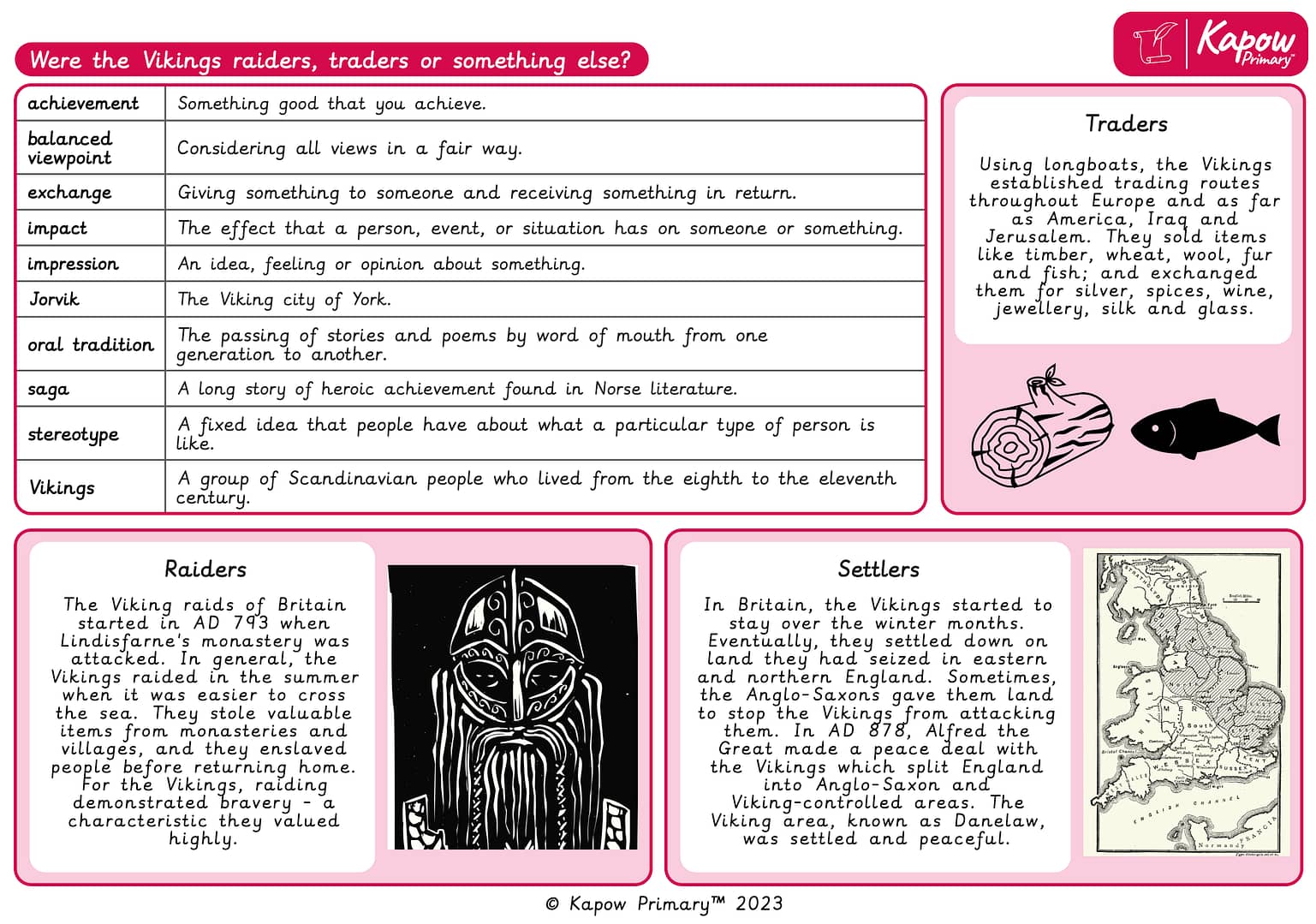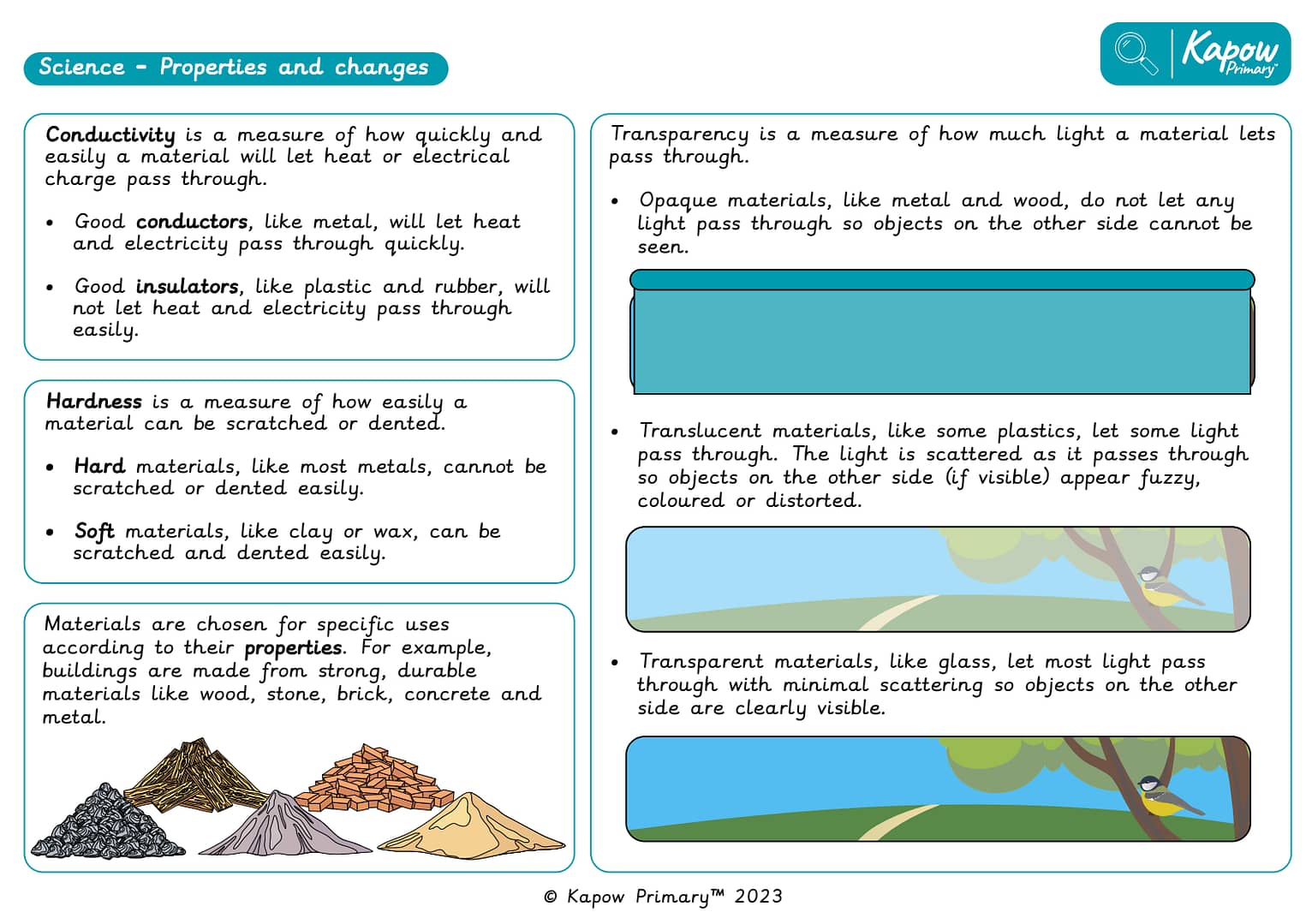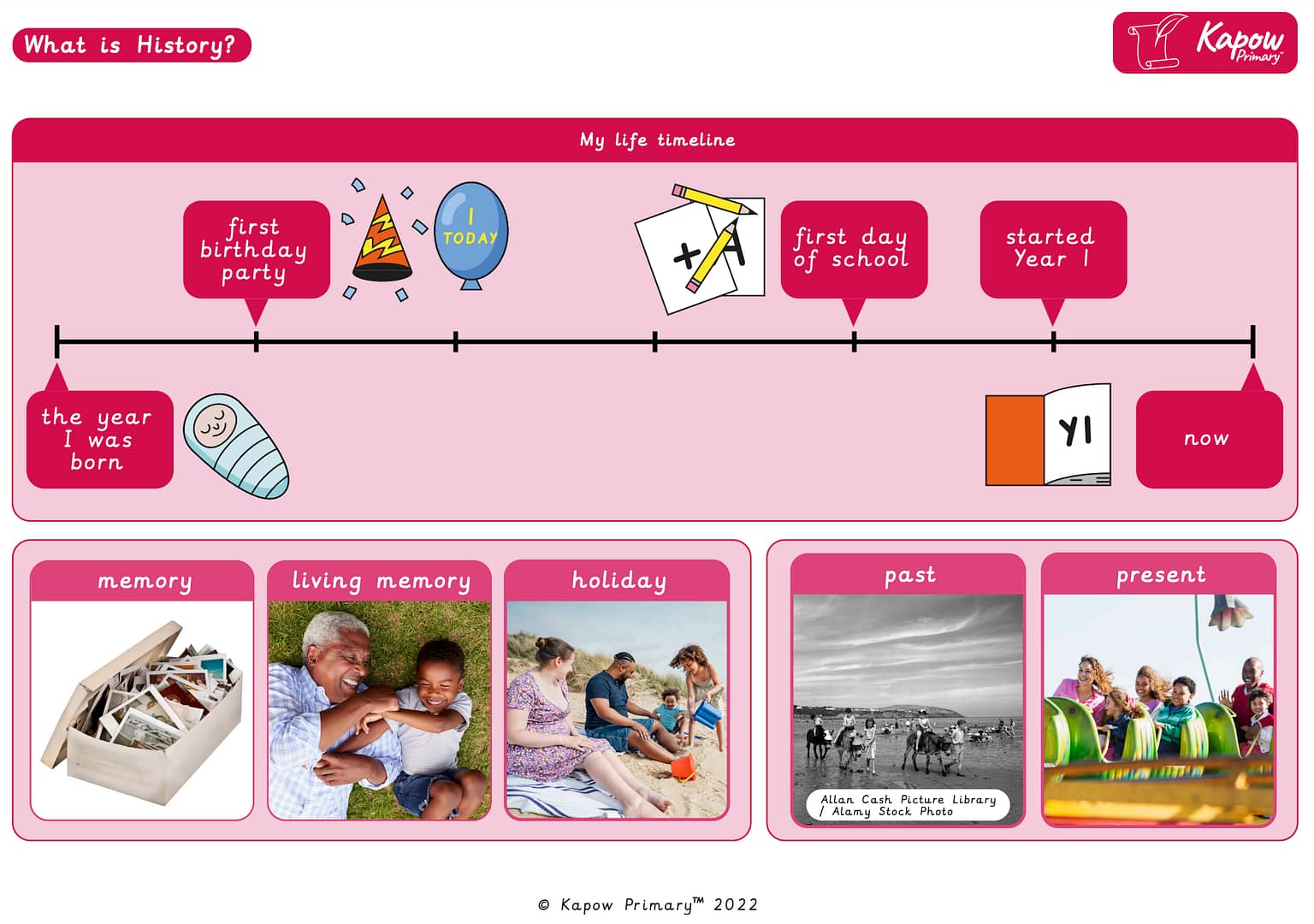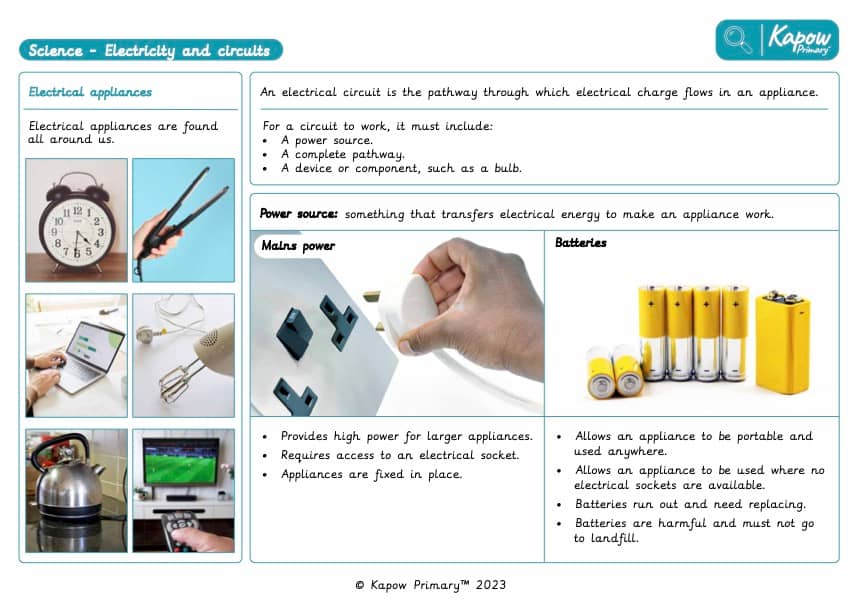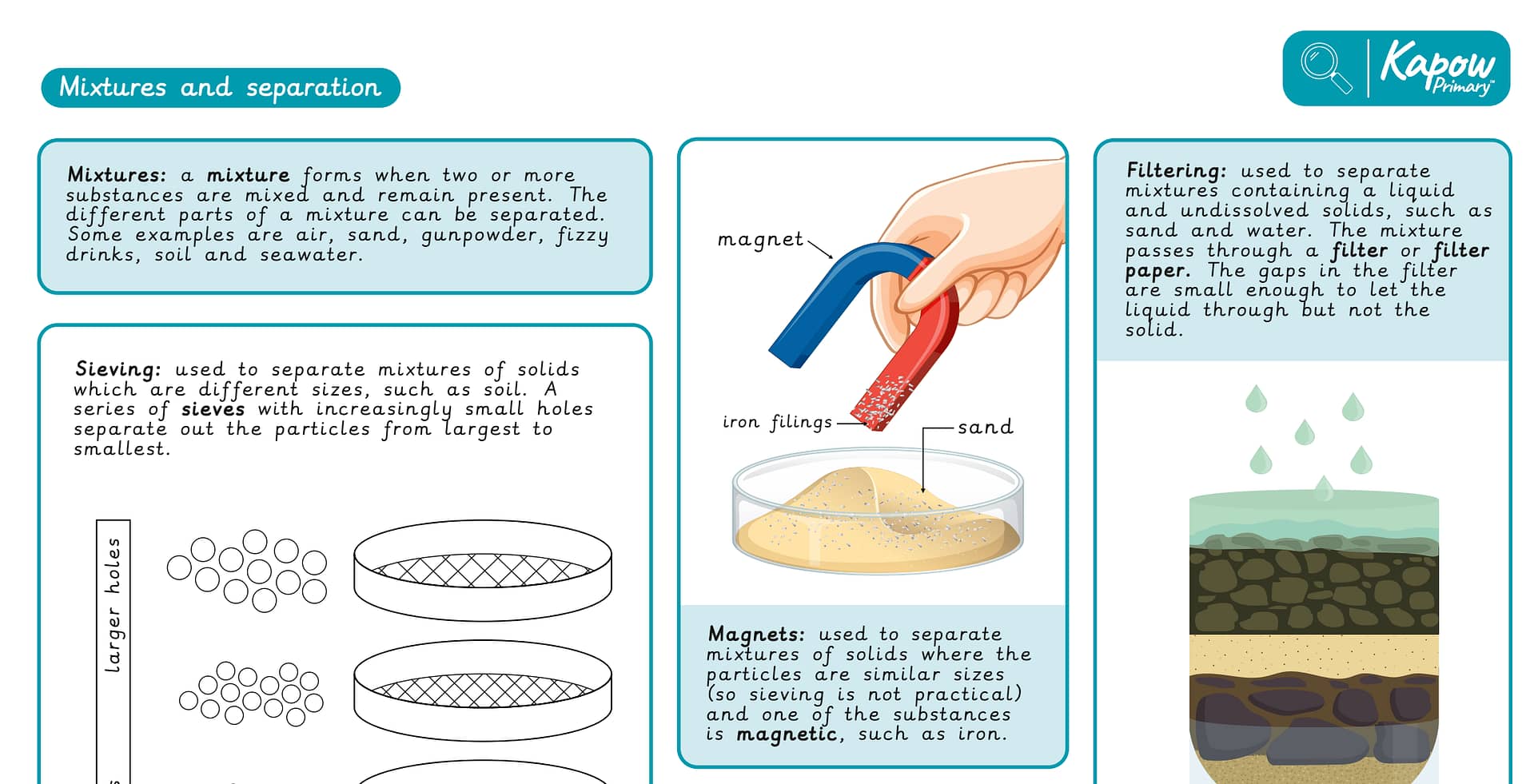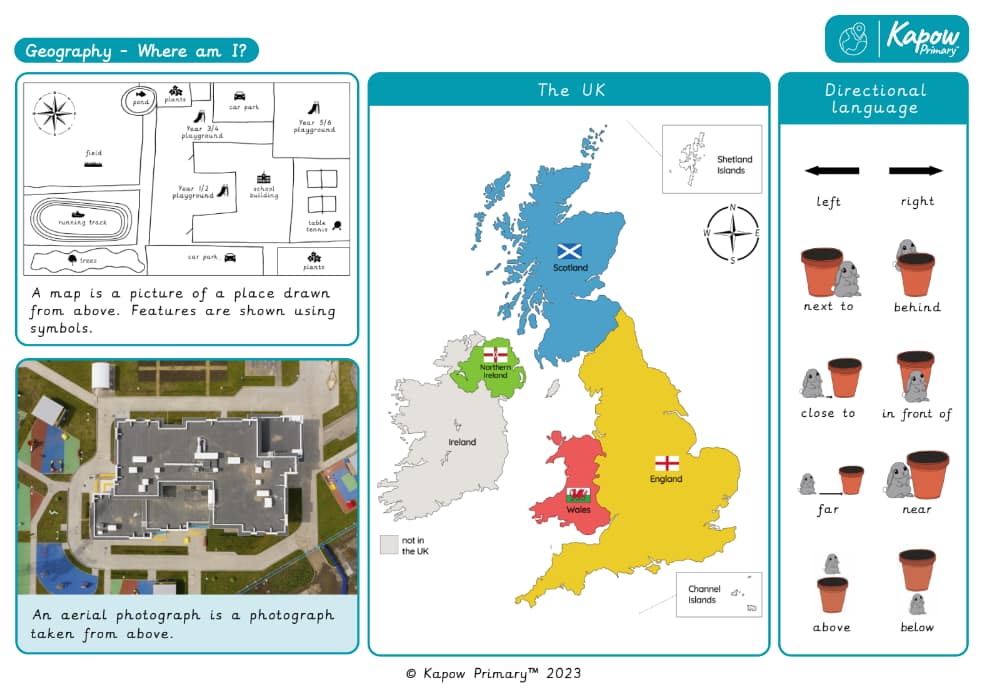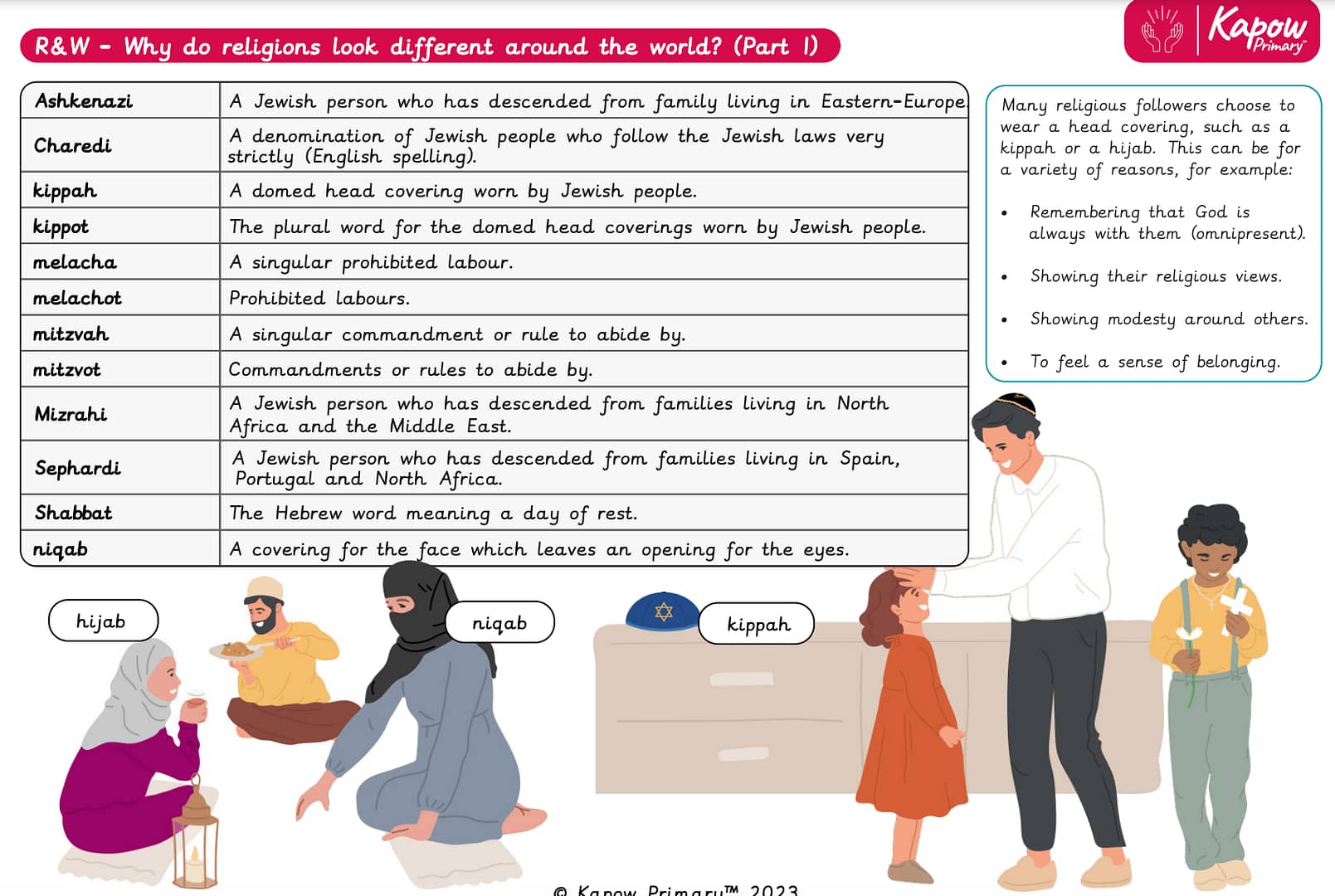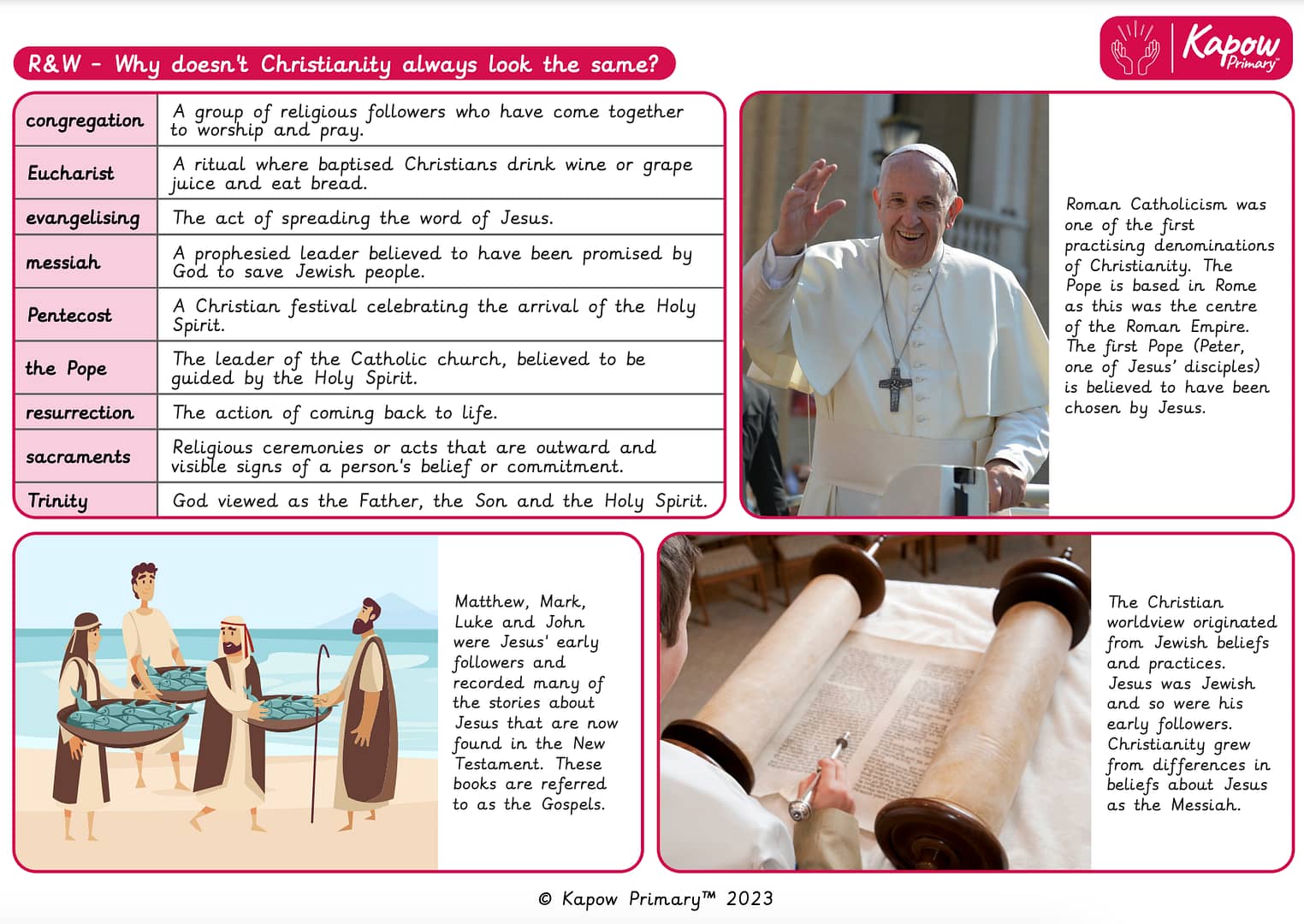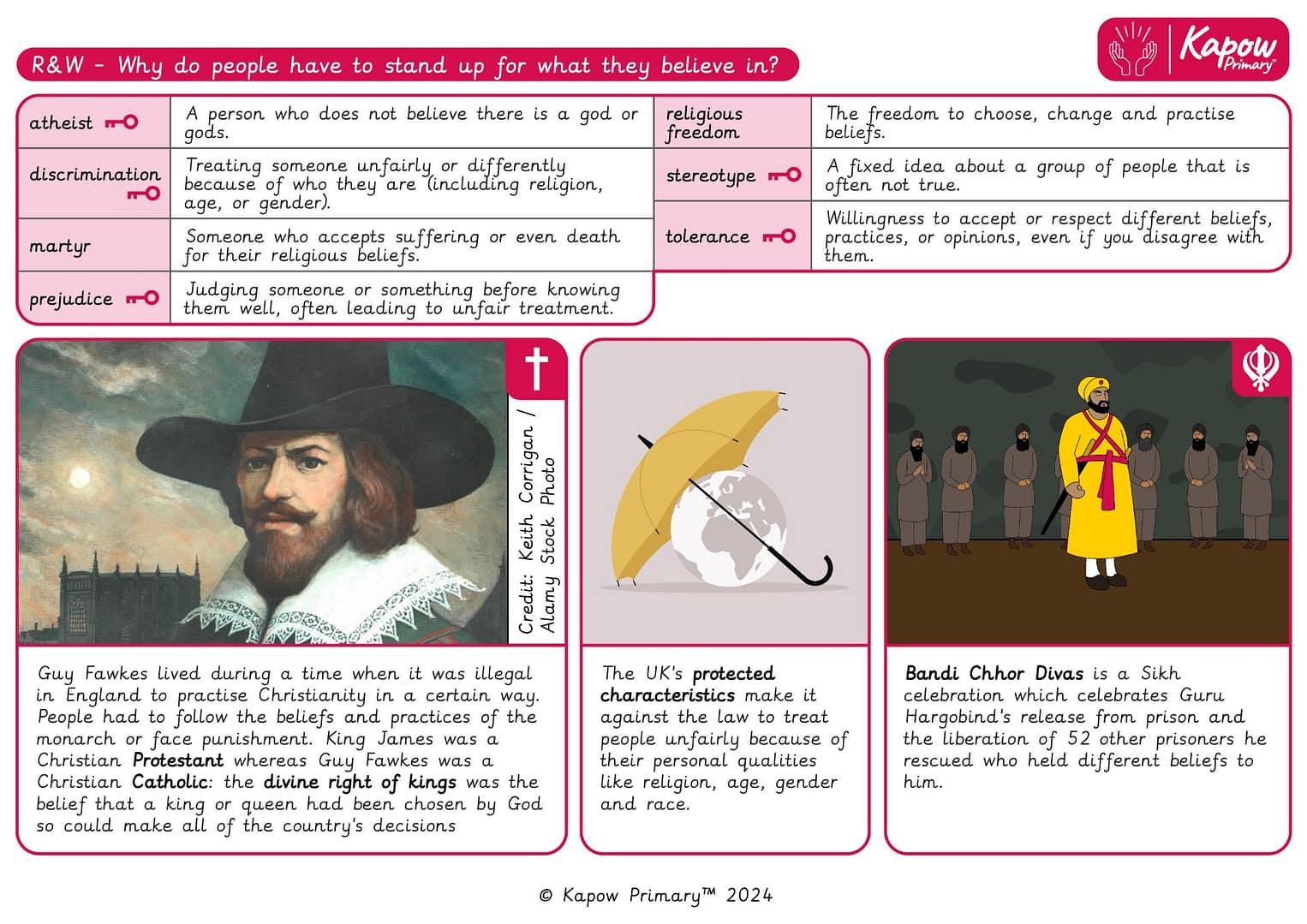Featured Document Type: Knowledge organiser
Knowledge organiser – Science Y5: Materials: Properties and changes
A Knowledge organiser that captures the essential knowledge and skills learnt throughout the unit Science, Year 5, Materials: Properties and changes.
This resource is designed to support the children as they explore the properties and changes of materials. It highlights key vocabulary and concepts, including conductivity, hardness, transparency and the suitability of materials for different uses. The resource also explains the difference between reversible and irreversible changes, with examples such as dissolving, melting, burning and rusting. It is perfect for consolidating essential knowledge and fostering an understanding of how materials behave and how they can be changed through physical and chemical processes.
Knowledge organiser – History Y1/2 (B): What is history?
A Knowledge organiser that captures the essential knowledge and skills learnt throughout the mixed-age unit History, Y1/2 (B), What is history?
This resource is designed to introduce pupils to the concept of history by helping them explore their own past and understand the difference between past and present. It features a personalised timeline beginning with “the year I was born” through key milestones like “first birthday party” and “first day of school”, culminating in “now”. Supporting images and keywords such as memory, living memory, holiday, past, and present aid pupils in identifying events that shape personal and collective history. This resource lays the foundation for historical thinking through relatable, everyday experiences.
Knowledge organiser – Science Y4: Energy: Electricity and circuits
A Knowledge organiser that captures the essential knowledge and skills learnt throughout the unit Science, Year 4, Energy: Electricity and circuits.
This resource is designed to support the children as they explore electricity and circuits. It highlights key vocabulary and concepts, including how electrical circuits work, the role of components such as batteries, bulbs and switches and the differences between mains electricity and battery power. The resource also introduces circuit diagrams, electrical conductors and insulators and essential electrical safety rules. It is perfect for consolidating essential knowledge and fostering an understanding of how electricity is used in everyday life.
Knowledge organiser – Science Y5: Materials: Mixtures and separation
Knowledge organiser: Geography – Y 1/2 Where am I?
A Knowledge Organiser that captures the essential knowledge and skills learnt throughout the unit Geography, Y1/2 (B), Where am I?
This resource is designed to help pupils build foundational geographical understanding by exploring maps, aerial photographs, and the use of directional language. It introduces key locational terms such as left, right, behind, close to, and in front of, along with concepts like aerial photograph and map symbols. The UK map is included to familiarise pupils with the four nations and key geography skills. This resource supports early spatial awareness and positional vocabulary, fostering pupils’ confidence in describing location and direction in their local environment.
Knowledge organiser – R&W Y6: Why does religion look different around the world? (Part 1)
A Knowledge organiser that captures the essential knowledge and skills learnt throughout the unit Religion and Worldviews, Year 6, Religion and the World (Part 1).
This Religion and Worldviews resource is designed to support the pupils as they explore how religion interacts with society, culture, and global issues. It introduces key vocabulary such as faith, morality, secularism, philosophy, and worldview, helping the pupils understand different perspectives on the role of religion in the modern world. The pupils will also examine the influence of religion on laws, ethics, and personal identity.
Knowledge organiser – R&W Y5: Why doesn’t Christianity always look the same?
A Knowledge organiser that captures the essential knowledge and skills learnt throughout the unit Religion and Worldviews, Year 5, Why doesn’t Christianity always look the same?
This Religion and Worldviews resource is designed to support the pupils as they explore key beliefs, teachings, and practices in Christianity. It introduces key vocabulary such as gospel, salvation, disciples, parables, and worship, helping the pupils understand how Christian faith influences daily life and moral decisions. The pupils will also examine significant Christian traditions, symbols, and the impact of Christianity on communities around the world.
Knowledge organiser – R&W Y5: Why do people have to stand up for what they believe in?
A Knowledge organiser that captures the essential knowledge and skills learnt throughout the unit Religion and Worldviews, Year 5, Why Do People Have to Stand Up for What They Believe In?
This Religion and Worldviews resource is designed to support the pupils as they explore the concept of standing up for beliefs and values. It introduces key vocabulary such as activism, justice, morality, protest, and commitment, helping the pupils understand how religious and non-religious worldviews inspire individuals to take action. The pupils will also examine historical and contemporary examples of people who have stood up for their beliefs and the impact of their actions.

